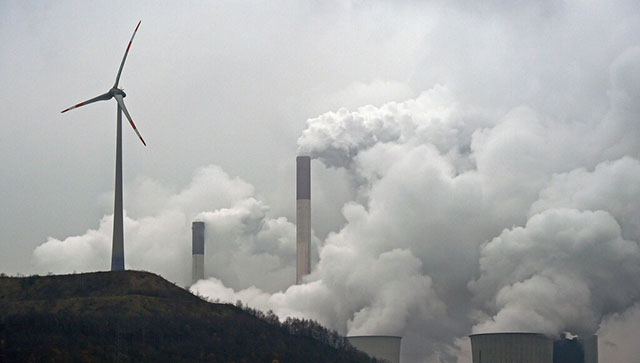In a world dominated by wars, artificial intelligence and viral trends, there’s an often-dismissed player at the global stage – the quiet but impactful guest named climate change. While it may not be the trendiest topic, recent revelations suggest that its consequences extend far beyond environmental concerns, carving a significant niche in the world of global economics.
Unveiling the economic toll Climate change, often relegated to the periphery, emerged in 2022 as a force reshaping the economic landscape. Reports unveiled a staggering 6.3 per cent reduction in the world’s global economic output, signalling that the consequences of climate change are not just environmental but have far-reaching implications for the global economy. While the economic toll is universal, the burden is not evenly distributed. Africa, contributing only 4 per cent to global emissions, found itself disproportionately affected. In 2022, 110 million people in Africa bore the brunt of climate change, resulting in a substantial loss of $8.5 billion. Projections indicate that, by 2030, annual losses for the continent could reach $10 to $20 billion, hindering progress and development. South Asian nations face a parallel struggle. Dependent on agriculture, these economies are disrupted by floods, droughts and extreme temperatures, leading to distressed farmers and potential food shortages. Without intervention, South Asian economies could shrink by 1.8 per cent by 2050, highlighting the urgency for comprehensive climate strategies. Australia and Europe: Divergent economic trajectories Even economically robust nations are not immune. Australia, facing potential GDP cuts of $274 billion due to climate change, is at risk of substantial economic losses. In a surprising twist, Europe experienced short-term economic gains, with warmer temperatures contributing to a nearly 5 per cent increase in net GDP. However, the ephemeral nature of these gains raises concerns about the long-term impact on the continent’s economic stability. Urgency of global action Recognising the severity of the situation, the COP27 summit proposed a Damage and Loss Fund. However, as COP28 approaches, the lack of clarity surrounding the fund becomes a focal point of concern. The need for concrete action is emphasised, urging governments to prioritise solutions such as renewable energy, sustainable practices and climate-resilient infrastructure. Climate financing should not be another debated topic. It must become the top priority with historical emitters taking responsibility for the damage they have caused. The economic toll of climate change is not a distant threat—it is a present reality. Beyond discussions, the world needs decisive action to combat climate change’s economic ramifications. Governments must prioritise solutions and channel resources into mitigating the impacts. Climate financing is not charity. It’s an urgent necessity. As we stand on the brink of COP28, the world must move beyond dialogue and take the necessary steps to secure a sustainable economic future. Views expressed in the above piece are personal and solely that of the author. They do not necessarily reflect Firstpost’s views. Read all the Latest News , Trending News , Cricket News , Bollywood News , India News and Entertainment News here. Follow us on Facebook , Twitter and Instagram .
)